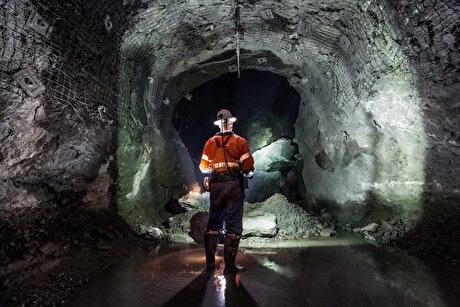
Students from University of Duisburg-Essen win third Data Challenge of SMS digital
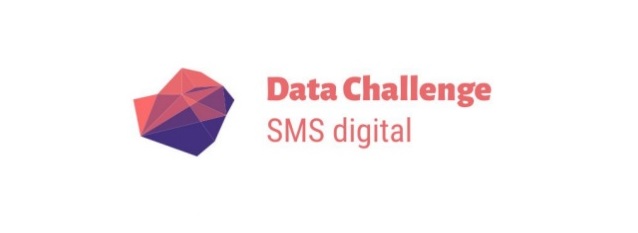
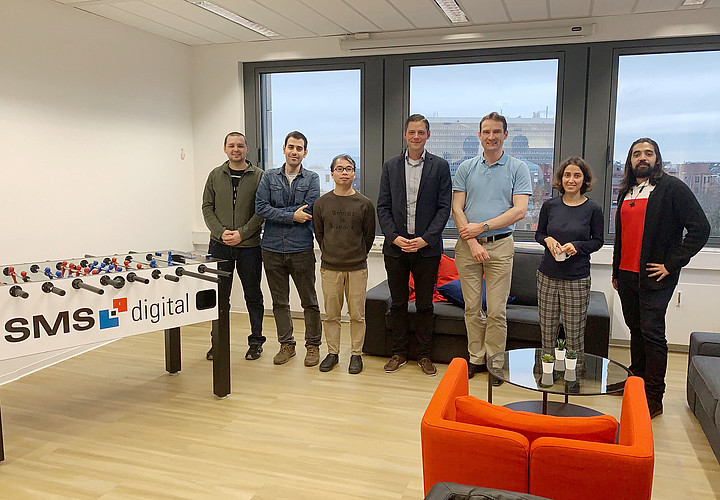
From left to right: Artur Faizullin, SMS digital; Mohammad Armoun, Chen Shikun, first place; Bernhard Steenken, CEO SMS digital; Dirk Lieftucht, SMS digital; Sherri Hadian, SMS digital; Gari Jose Ciodaro Guerra, second place.
This was the question that 25 bachelor’s and master's degree students from Jacobs University Bremen, the University of Duisburg-Essen, and South Ural State University in Chelyabinsk spent two months puzzling over. Now the winner has been announced: First prize in this year's Data Challenge goes to Chen Shikun and Mohammad Armoun from the University of Duisburg-Essen. The runner-up is Gari Jose Ciodaro Guerra from the Jacobs University of Bremen. And third prize goes to a team from the University of Chelyabinsk.
The concept, which SMS digital is now implementing for the third time, is proving to be a complete success once again and has been very well received by the participants, particularly because it addresses a problem of industrial steel production. What was new about the Data Challenge this year was that it took the form of a match between universities.
The aim of the Data Challenge was to develop an algorithm that is capable of detecting potential defects during steel production, based on the raw material used, throughout the entire production process and in particular, the casting of steel in a continuous casting plant, and so make them visible and prevent them from happening. This is where machine learning and deep learning algorithms, including programming languages such as Python, were utilized. Early identification of defects during the casting process not only prevents immense costs, but also reduces CO2 emissions from steel production.
The participants were given real data sets from software applications that are already used by one of the largest steel producers in the U.S. In order to implement and test the algorithms, the participants received a total of over 30,000 data inputs on the raw material composition of the liquid steel to be cast and information on the corresponding material defects that occur on the produced slabs during production and are to be avoided in the future. Finally, experts from SMS digital tested whether the predictions made by the students matched the actual defects identified.
It was not easy for the jury to decide on a winner, because all teams convinced with extremely innovative ideas and approaches to solutions. Without really knowing the metal manufacturing industry, this is a great achievement. The results attained by the participants were outstanding: The defect predictions made by all of the final teams were almost 100 percent correct. The team from the University of Duisburg-Essen impressed the jury with its solution to avoid these deficiencies across the board.
Dirk Lieftucht, organizer and head of Metallurgical Applications at SMS digital, added: "The Data Challenge doesn't just provide us with new insights, it also gives us access to a large pool of data analyses. These help us to work on new digital solutions."
Throughout the Data Challenge, which lasted around two months, experts from SMS digital were on hand to offer guidance and support to the participants. Video conferences were held every week to answer questions and give useful tips and advice. A dedicated web page with lots of information on the Data Challenge was also set up for the participants.
Bernhard Steenken, CEO of SMS digital, explained: “These innovative approaches from the young data scientists are tremendously helpful to us. Gaining a different perspective on the problems facing our industry is just what we hope to achieve with the Data Challenge. Not only that, as an employer, we want to win over high-potential recruits, because we are currently expanding our team rapidly. For us, it's important to share knowledge within the team and think outside the box. That's why we hold regular hackathons, where the team works together to develop digital prototypes within 48 hours. Employees with no IT background are needed here, too, as it is precisely this that promotes creative collaboration within the company.ˮ
In addition to a cash prize of EUR 15,000 for the first-prize winner and EUR 5,000 for the runner-up, the winners will also be given a tour of a steel plant in the U.S. at one of North America's largest steel producers. There they will be able to experience a vast production facility of enormous dimensions and see where their idea is to be turned into reality.
The next Data Challenge will take place in 2021.


SAIL Bhilai Steel relies on Danieli proprietary technology to expand plate mill portfolio to higher steel grades

Alba Discloses its Financial Results for the Second Quarter and H1 of 2025
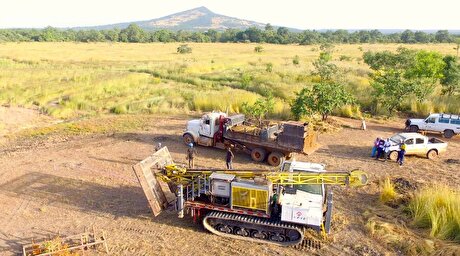
Fortuna rises on improved resource estimate for Senegal gold project

Copper price slips as unwinding of tariff trade boosts LME stockpiles

US slaps tariffs on 1-kg, 100-oz gold bars: Financial Times

Fresnillo lifts gold forecast on strong first-half surge

Why did copper escape US tariffs when aluminum did not?

Codelco seeks restart at Chilean copper mine after collapse

NextSource soars on Mitsubishi Chemical offtake deal

Hudbay snags $600M investment for Arizona copper project
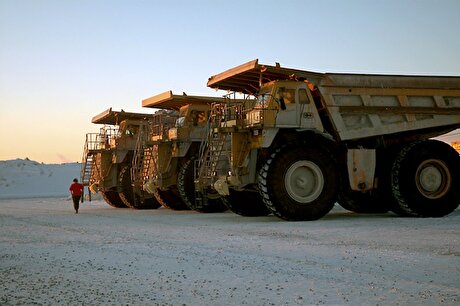
Discovery Silver hits new high on first quarterly results as producer

Trump says gold imports won’t be tariffed in reprieve for market

AI data centers to worsen copper shortage – BNEF

Uzbek gold miner said to eye $20 billion value in dual listing

Peabody–Anglo $3.8B coal deal on the brink after mine fire

De Beers strikes first kimberlite field in 30 years

Minera Alamos buys Equinox’s Nevada assets for $115M
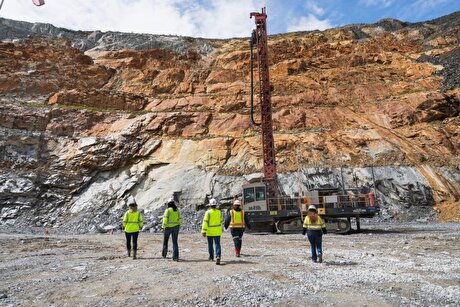
OceanaGold hits new high on strong Q2 results
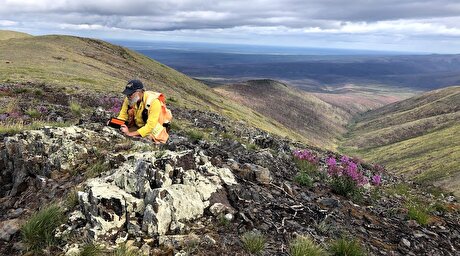
What’s next for the USGS critical mineral list

Hudbay snags $600M investment for Arizona copper project

Discovery Silver hits new high on first quarterly results as producer

Trump says gold imports won’t be tariffed in reprieve for market

AI data centers to worsen copper shortage – BNEF

Peabody–Anglo $3.8B coal deal on the brink after mine fire

De Beers strikes first kimberlite field in 30 years

Minera Alamos buys Equinox’s Nevada assets for $115M

OceanaGold hits new high on strong Q2 results

South Africa looks to join international diamond marketing push
